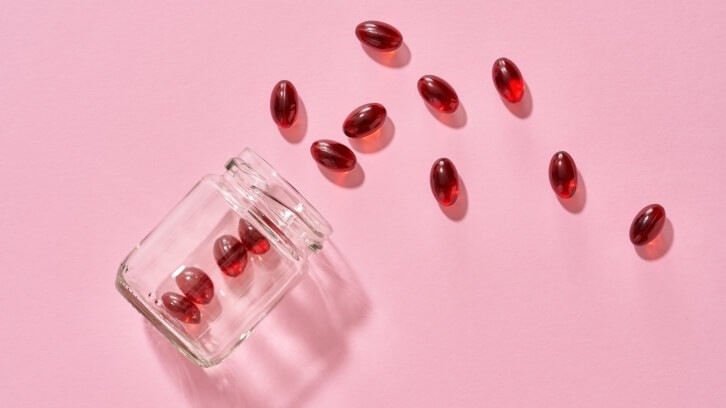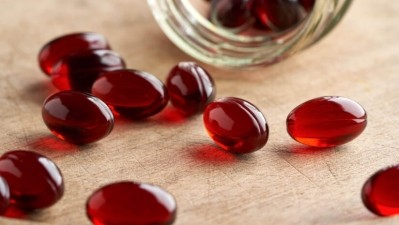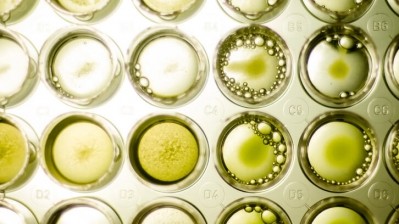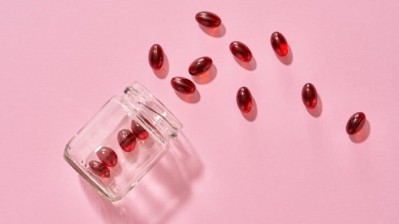Novel krill-derived supplement may offer neuroprotective effects for newborns

Short-term supplementation with lysophosphatidylcholine (LPC)-bound omega-3 fatty acids was found to provide neuroprotection against neonatal hypoxic-ischemic brain injury in mice by protecting against brain damage and myelin loss due to a lack of oxygen and reduced blood flow (hypoxia-ischemia).
Perinatal asphyxia is a major cause of hypoxic-ischemic (HI) brain injury in newborn babies. Neonatal HI brain injury is a significant contributor to various lifelong health challenges and can result in neonatal mortality.
“Neonatal brain injury has been shown to reduce the amount of DHA in the brain, and the hypothesis is that nutritional supplementation with DHA could help reduce this deficiency and hence the risk of brain injury,” explained Line Johnsen, SVP human health ingredients R&D at krill oil supplier Aker BioMarine.
“Considering that the EPA and DHA in Lysoveta is part of a specific molecular structure (LPC) leading to accumulation of DHA in the brain, we believe that it holds great potential to mitigate brain injury, which we now see evidenced through this recent study.”
Crossing the blood-brain barrier
The study used Aker BioMarine’s krill-derived Lysoveta branded dietary supplement for targeted delivery of lysophosphatidylcholine (LPC-EPA/DHA).
The omega-3 fatty acids DHA and EPA cannot be synthesized efficiently in the brain and must be transported across the blood-brain barrier (BBB) via the MFSD2A transporter, explained Aka. MFSD2A, which is described as a “multifunctional gatekeeper”, only recognizes esterified DHA and EPA in the form of lysophosphatidylcholine (LPC).
The LPC transport is critical for providing LPC as building blocks for formation of neurons and regulation of membrane phospholipid composition. MFSD2A is also present in other vital organs such as eye and liver, highlighting the wide-ranging potential for beneficial effects of dietary LPC.
Study details
Writing in Nutrients, scientists from Utrecht University and Aker BioMarine Human Ingredients AS investigated the potential benefits of Lysoveta in combination with mesenchymal stem cell (MSC) therapy in newborn mice with hypoxia-ischemia. MSC is reported to be one of the most promising current therapies for neonatal brain injury, they noted.
Nine day-old mice were supplemented with Lysoveta for seven days, with or without MSCs from three days after brain injury.
The data showed that the krill oil supplement significantly reduced both gray matter and white matter loss and that Lysoveta did not enhance the effectiveness of MSC therapy.
On the other hand, no functional improvements were observed following Lysoveta supplementation, which the researchers said may have been due to limitations with the study design.
“In summary, this study suggests that early-life nutritional supplementation with Lysoveta may be a promising strategy to reduce neonatal hypoxic-ischemic brain injury by protecting against neuronal damage and myelin loss associated with oxidative stress-induced injuries,” said Dr. Caroline de Theije from Utrecht University and corresponding author on the new paper.
“We also see a need to further study Lysoveta’s effects, looking into treatment doses, timing, and duration of treatment to obtain the most beneficial treatment regime.”
Source: Nutrients
2024, 16(14), 2252; doi: 10.3390/nu16142252
“Dietary LPC-Bound n-3 LCPUFA Protects against Neonatal Brain Injury in Mice but Does Not Enhance Stem Cell Therapy”
Authors: E.C. Hermans et al.
















